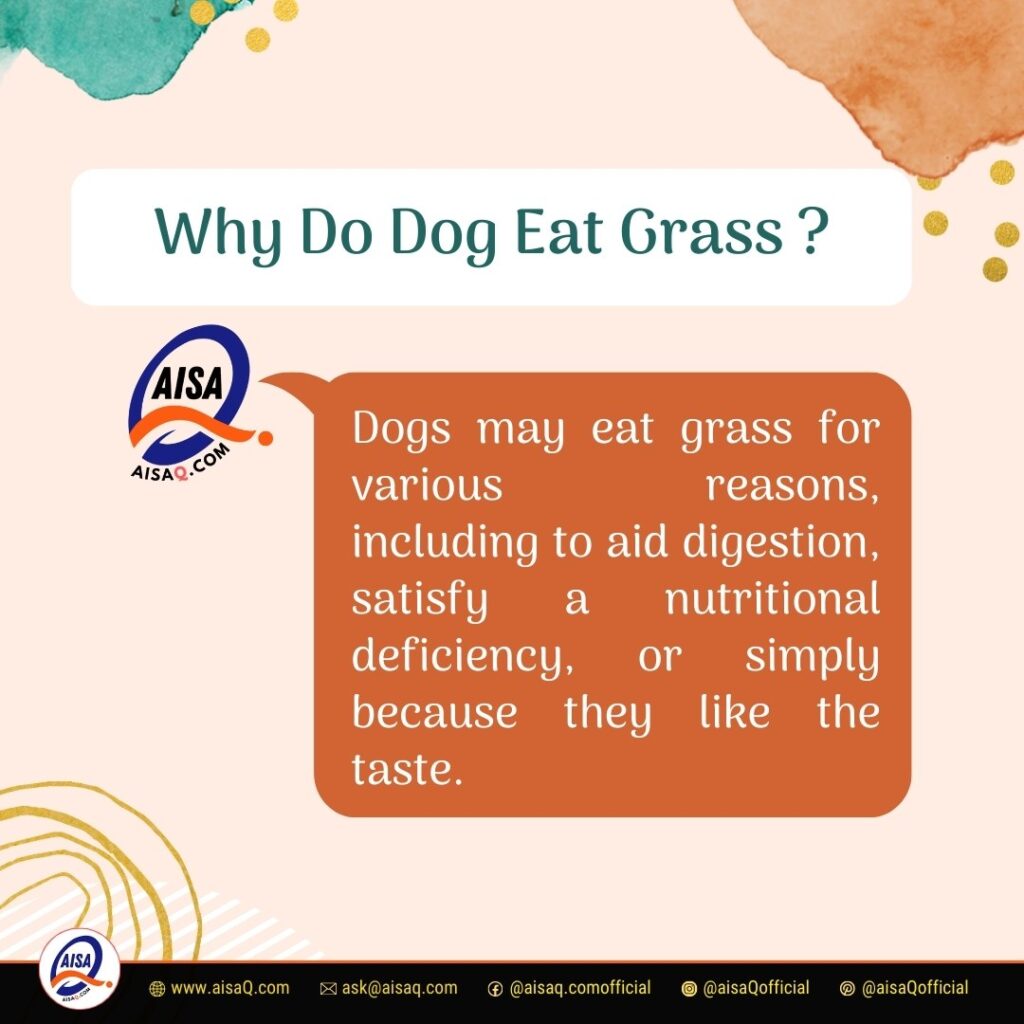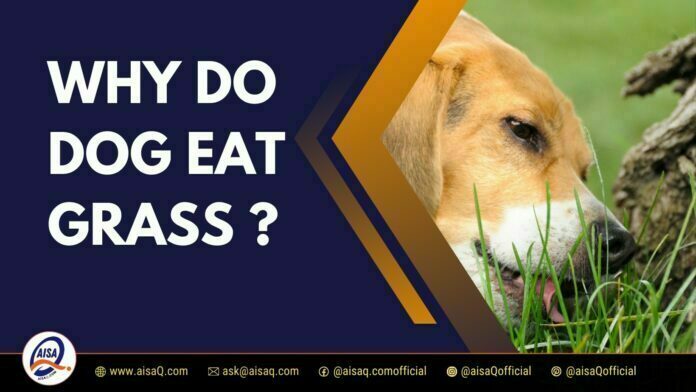Table of Contents

Why Do Dog Eat Grass

As dog owners, we are familiar with our furry friends’ various habits, including eating grass. You may have seen your dog chomping down on grass blades, and wondered, “why on earth are they doing that?” While this behavior may seem unusual and even concerning, rest assured that it’s quite common. In fact, many dogs eat grass regularly without experiencing any ill effects. In this article, we’ll take an in-depth look at why dogs eat grass, the benefits and risks of grass consumption, and what to do if your dog’s grass-eating habits become problematic.
The Science Behind Canine Grass Consumption
The first thing to understand about canine grass consumption is that it’s not a behavior unique to dogs. In fact, many other animals, including wild canids, such as wolves and coyotes, are known to eat grass. There are several theories as to why dogs eat grass, but no one theory can explain this behavior conclusively. However, some of the most commonly accepted theories are as follows:
Digestive Aid Theory
One theory suggests that dogs eat grass to aid their digestion. Grass contains a lot of fiber, which can help move food through a dog’s digestive system more efficiently. Some dogs may eat grass when they’re feeling constipated, as the fiber can help them pass stool more easily.
Nutrient Deficiency Theory
Another theory is that dogs eat grass because they are deficient in certain nutrients. This theory suggests that dogs eat grass to supplement their diets with vitamins, minerals, and other nutrients that they may not be getting enough of from their regular food. However, this theory has not been scientifically proven.
Behavioral Theory
A third theory suggests that dogs eat grass simply because they enjoy the taste or texture. Dogs are curious creatures and like to explore their environment. Eating grass may be a way for them to satisfy their curiosity and engage in new experiences.
The Benefits of Grass Consumption
While grass consumption may seem like a strange and unnecessary behavior, there are some potential benefits to this habit. One of the most significant benefits of eating grass is that it can aid digestion. The fiber in grass can help move food through the digestive system more efficiently, which can reduce constipation and other digestive issues.
Grass as a Source of Nutrients
Another potential benefit of grass consumption is that it can provide dogs with additional nutrients. Grass contains several essential vitamins and minerals, such as vitamin A, vitamin E, and calcium. These nutrients can be beneficial to a dog’s overall health and well-being.
The Risks of Grass Consumption
While there are some potential benefits to eating grass, there are also some risks to consider. One of the most significant risks is that the grass may contain harmful chemicals, such as pesticides or fertilizers. These chemicals can be toxic to dogs and can cause a range of health issues, including vomiting, diarrhea, and even death in severe cases.
Intestinal Blockages
Another risk associated with grass consumption is that it can lead to intestinal blockages. Dogs that eat large quantities of grass may develop an obstruction in their digestive system, which can be life-threatening if left untreated.

FAQ’s
What to Do if Your Dog Eats Grass?

If you notice that your dog is eating grass, there are a few things you can do to ensure their safety and well-being. First, make sure that the grass your dog is eating is free of any harmful chemicals.
What are the risks associated with dogs eating grass?
While it is generally safe for dogs to eat grass, there are some risks associated with this behavior. One potential risk is that the grass may be contaminated with pesticides or other chemicals, which can be harmful to your dog’s health. Another risk is that your dog may accidentally ingest other dangerous items while grazing on the grass, such as rocks, sticks, or even small animals. Finally, if your dog eats too much grass, it can cause digestive upset or even vomiting.
How can I prevent my dog from eating grass?
If you are concerned about your dog’s grass-eating behavior, there are a few things you can do to try to prevent it. First, make sure your dog is getting enough fiber in their diet to help keep their digestive system healthy. You can also try providing your dog with plenty of chew toys and other activities to keep them busy and distracted from the grass. Additionally, you may want to try using a taste deterrent spray on the grass to discourage your dog from eating it.
Conclusion
While there is no one definitive answer to the question of why dogs eat grass, there are a few different theories that have been proposed. Some experts believe that dogs may eat grass to help soothe an upset stomach or to aid in digestion, while others think that it may simply be a natural instinct. While it is generally safe for dogs to eat grass, it is important to be aware of the potential risks associated with this behavior, and to take steps to prevent your dog from ingesting harmful substances or other dangerous items while grazing. By understanding why dogs eat grass and taking steps to keep your pet healthy and safe, you can ensure that they continue to be happy and thriving members of your family.


